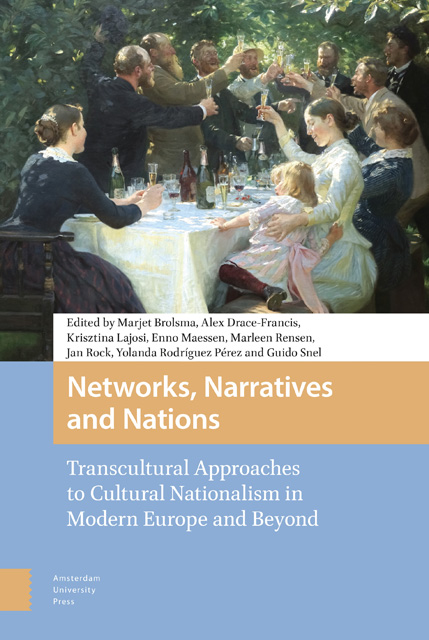 Networks, Narratives and Nations
Networks, Narratives and Nations Published online by Cambridge University Press: 16 November 2022
Abstract
Folklore studies are rightly traced from the ideas of Herder and the Grimm brothers and are usually seen as a kind of domestic ethnography. This chapter explores a wider non-European dimension, both in the conceptualization of folklore studies and in the continued engagement of folklorists with non-western cultures. Referencing Irish and Italian case studies, it shows how the research field carries its own colonial legacies.
Keywords: folklore; folklife; ethnography; colonialism
Joep Leerssen stresses the seminal importance of Herder's cultural relativism to European “national awakenings,” and points out that “all of the Romantic (and later) preoccupation with popular culture, from the Grimms’ collection of fairytales to the birth of folklore studies” is due to it. This cultural relativism was informed by the non-European world. Unlike Vico, who showed little interest in exotic cultures, and Rousseau and philosophes such as Montesquieu whose interest in them was more philosophical than ethnographic, Herder sought out and was well-read in non-western ethnographic accounts.
The concept of oral tradition, central to folklore studies, originally emerged from the field of theology, but took an ethnographic turn early in the eighteenth century through its application to indigenous American societies. The most important example is Mœurs des sauvages amériquains, compareés aux moeurs des premiers temps (Customs of the American Indians Compared with the Customs of Primitive Times, 1724), by the Jesuit missionary Joseph-François Lafitau, in which he stressed how the sophisticated arts, laws and customs of the Iroquois were transmitted by oral tradition.
Gottfried Wilhelm Leibniz's ideas on language were an important influence on the German scholars who were to the fore in official Russian expeditions to Siberia in the eighteenth century. Gerhard Friedrich Müller, who had read Lafitau, wrote of the new research field of historia gentium, “history of peoples,” and in 1740 coined the term Völlker-Beschreibung, the “description of peoples.” August Ludwig Schlözer, his junior colleague, brought his research programme to central Europe, where new terms emerged in the 1760s, 1770s and 1780s: Ethnographia, Völlkerkunde, Ethnographie, Ethnologia and Volkskunde. The difference between Volkskunde and Volkerkunde was between the historical and descriptive study of one's own people and the comparative study of many, or of all, peoples.
To save this book to your Kindle, first ensure no-reply@cambridge.org is added to your Approved Personal Document E-mail List under your Personal Document Settings on the Manage Your Content and Devices page of your Amazon account. Then enter the ‘name’ part of your Kindle email address below. Find out more about saving to your Kindle.
Note you can select to save to either the @free.kindle.com or @kindle.com variations. ‘@free.kindle.com’ emails are free but can only be saved to your device when it is connected to wi-fi. ‘@kindle.com’ emails can be delivered even when you are not connected to wi-fi, but note that service fees apply.
Find out more about the Kindle Personal Document Service.
To save content items to your account, please confirm that you agree to abide by our usage policies. If this is the first time you use this feature, you will be asked to authorise Cambridge Core to connect with your account. Find out more about saving content to Dropbox.
To save content items to your account, please confirm that you agree to abide by our usage policies. If this is the first time you use this feature, you will be asked to authorise Cambridge Core to connect with your account. Find out more about saving content to Google Drive.